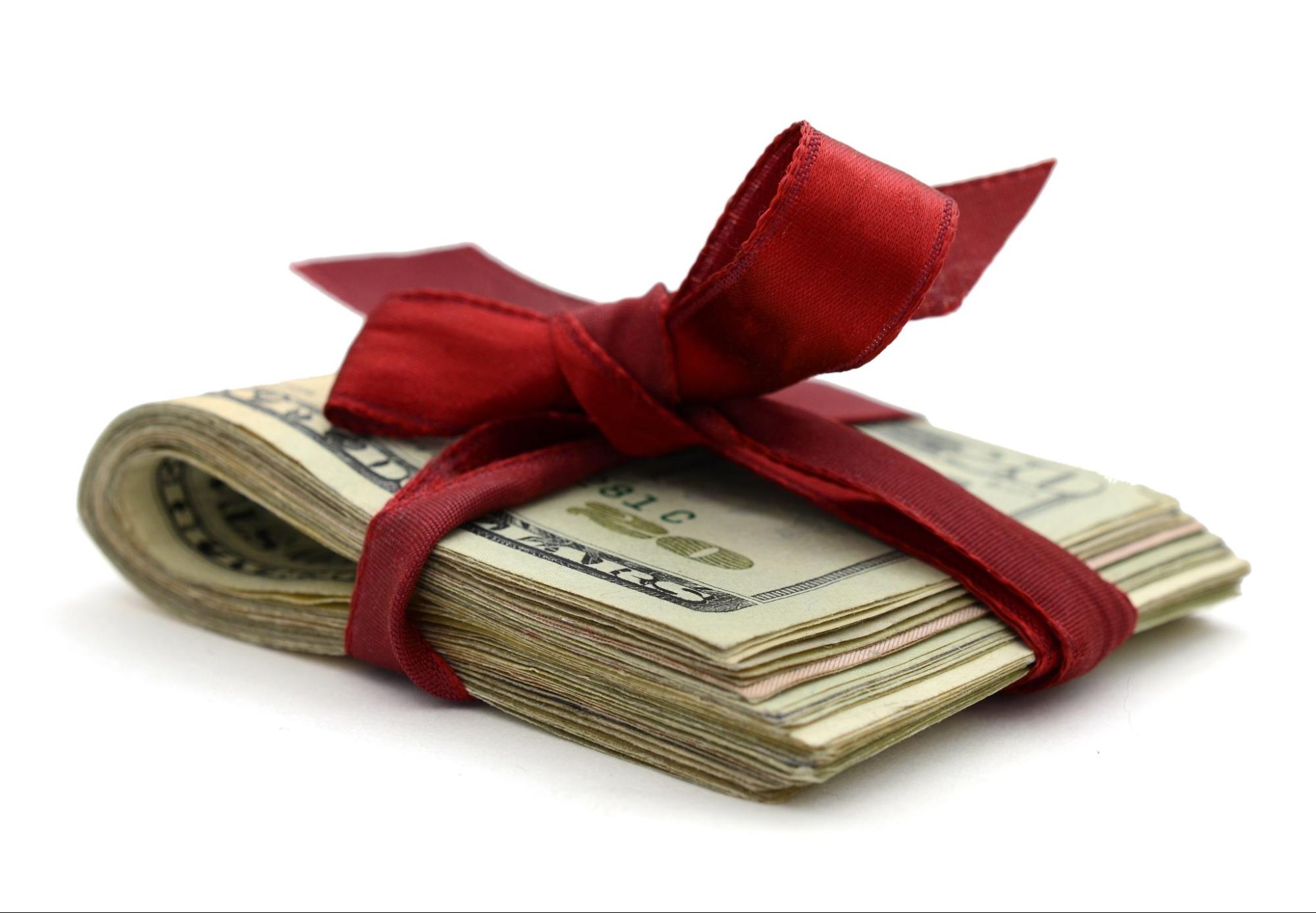Do your current financial apps give you everything you need in one place? Can you easily send money to friends, invest in stocks, save with competitive interest rates, and get paid early — all from a single app? If you hesitated for even a moment, Cash App might be the solution you’ve been looking for. Developed by Block, Inc. (formerly Square), Cash App has evolved from a simple peer-to-peer payment platform into a comprehensive financial tool that might just replace several apps in your digital wallet.
What Is Cash App?
Cash App is a versatile mobile financial platform that combines peer-to-peer payments, banking services, investments, and cryptocurrency in one user-friendly application. While Cash App isn’t a bank itself, it partners with FDIC-insured banks (including Sutton Bank and Wells Fargo) to provide banking services and, if you meet eligibility requirements, ensure your deposits are protected.†
Cash App has no monthly fees, no minimum balance requirements, and allows users to instantly send and receive money using a unique username called a $Cashtag. The app offers a customizable Visa debit card (Cash App Card) that can be used for in-store and online purchases, plus ATM withdrawals.
Beyond basic money transfers, Cash App lets you earn up to 3.75% APY on savings (with qualifying direct deposits)*, invest in stocks and ETFs with no commission fees**, and buy, sell, and transfer Bitcoin. You can also access your paycheck up to two days early with direct deposit and even file your taxes through the app.
What Sets Cash App Apart?
Cash App distinguishes itself from competitors through several unique features:
High-Yield Savings with Competitive Rates. Cash App offers up to 3.75% APY on savings balances for users who set up direct deposit of at least $300 per month and order a Cash App Card. This competitive rate rivals many dedicated high-yield savings accounts.*
Commission-Free Investing with Low Minimums. Unlike many investment platforms, Cash App allows users to invest in stocks and ETFs with as little as $1 through fractional shares, with no commission fees.**
Customizable Cash App Card. The Cash App Card is a customizable Visa debit card that allows users to personalize their card’s design and use “Offers” — special discounts at select merchants that can be activated and swapped through the app.
Tax Filing Integration. Cash App offers built-in tax filing capabilities, allowing users to prepare and file their taxes directly through the platform.
Use Cash App Afterpay For Recent Purchases. Get money back & pay over time for eligible past purchases made on your Cash App Card. Stay liquid when your life demands it.
Is Cash App Legit?
Yes, Cash App is a legitimate financial platform.
Cash App is developed and maintained by Block, Inc. (formerly Square, Inc.), a publicly traded company (NYSE: XYZ) that also created the popular Square payment processing system used by millions of businesses worldwide. The company is headed by Jack Dorsey, who also co-founded Twitter.
Cash App partners with established FDIC-insured banks to provide banking services. Cash App banking services are provided through partnerships with Sutton Bank (for Cash App Card) and Wells Fargo (for eligibility for FDIC-insured balances up to $250,000 per person subject to conditions).†
The platform employs advanced encryption and security measures to protect your financial information and transactions. Cash App has millions of active users and processes billions of dollars in transactions annually.
Key Features of Cash App
If you’re considering Cash App as your go-to financial platform, here’s a deeper look at its core features and capabilities.
Money Transfers
Cash App’s core function is peer-to-peer money transfers. Users can instantly send and receive money using a recipient’s $Cashtag, phone number, or email address. For verified customers, money can be sent from your Cash App balance, linked bank account, or debit card.
Once money is received, it appears in your Cash App balance and can be used for purchases with your Cash App Card, transferred to your linked bank account, or withdrawn at an ATM with your Cash App Card.
Cash App Card
The Cash App Card is a customizable Visa debit card that draws funds directly from your Cash App balance. Users can:
Design their own card with custom colors, drawings, or emojis
Use the card where Visa is accepted, including in-store, online, and at ATMs
Add the card to Apple Pay or Google Pay for contactless payments
Access “Offers” — special discounts at select merchants that can be activated and swapped in the app
Direct Deposit and Early Pay
Cash App offers direct deposit capabilities that can give you access to your paycheck up to two days earlier than many banks. To set up direct deposit:
Get your Cash App routing and account numbers in the Banking tab
Provide these numbers to your employer or benefits provider
Receive qualifying direct deposits of at least $300 per month to unlock additional benefits
With qualifying direct deposits, users can unlock:
Up to 3.75% APY on savings*
Free in-network ATM withdrawals
Up to $200 in overdraft protection on Cash App Card purchases without fees
High-Yield Savings
Cash App Savings offers a competitive 3.75% APY* on balances when you:
Are at least 18 years old
Have a Cash App debit card
Set up direct deposit of at least $300 per month
Funds in the savings balance may be eligible for FDIC-insurance through Wells Fargo when requirements are met, offering protection up to $250,000 per person, if certain conditions are met.†
Investing
Cash App Investing allows users to buy and sell stocks and ETFs with no commission fees**. Key features include:
Access to over 1,800 stocks and ETFs
Fractional share investing with as little as $1
Real-time market data and stock information
No account minimums or maintenance fees
Bitcoin Trading
Cash App offers Bitcoin purchasing and selling capabilities with:
Ability to buy as little as $1’s worth of Bitcoin
Options to set up automatic recurring Bitcoin purchases
Bitcoin deposits and withdrawals with external wallets
Fees can range from 0.75% to 3%. There may be fees for buying, selling and withdrawing. There may also be a spread on the conversion rate for BTC trades.
Tax Filing
Cash App has integrated tax filing capabilities that allow users to:
Import W-2s by taking a photo
Automatically import previous tax information if you’ve filed with Credit Karma Tax
File federal and state taxes for free
Get expert help for an additional fee
Important Fees
While Cash App has no monthly maintenance fees or minimum balance requirements, there are some fees to be aware of:
ATM withdrawals: $2.50 per transaction plus any fees from the ATM operator (one free withdrawal per month with qualifying direct deposits)
Instant transfers to bank account: 0.5% to 1.75% of the transfer amount (minimum $0.25)
Bitcoin transactions: Variable fee based on transaction size (0.75% to 3%) plus potential spread of up to 1%
Advantages of Cash App
Cash App offers numerous benefits that make it an attractive option for managing your finances:
No Monthly Fees or Minimum Balance Requirements. Cash App has no monthly maintenance fees or minimum balance requirements, allowing users to maintain an account without worrying about charges for low balances.
High-Yield Savings Option. With qualifying direct deposits, Cash App offers up to 3.75% APY on savings balances, competitive with the best high-yield savings accounts available.*
Commission-Free Stock Trading. Cash App allows users to invest in stocks and ETFs with no commission fees** and fractional shares available for as little as $1, making investing accessible regardless of your budget.
Early Direct Deposit. Users can receive their paycheck up to two days earlier than many banks when they set up direct deposit with Cash App.
Instant Money Transfers. Cash App allows instant transfers between users, making it easy to split bills, pay friends, or send money to family members without delay.
Customizable Debit Card. The Cash App Card can be customized with colors, drawings, or emojis, allowing for personal expression while maintaining full functionality as a Visa debit card.
“Offers” Discounts. Cash App Card users can activate and swap special discounts (“Offers”) at select merchants, potentially saving money on everyday purchases.
Integrated Bitcoin Trading. Users can buy, sell, deposit and withdraw Bitcoin directly within the app, making cryptocurrency more accessible to beginners.
All-In-One Financial Platform. Cash App combines peer-to-peer payments, banking, savings, investing, and cryptocurrency in one application, potentially reducing the need for multiple financial apps.*
Tax Filing Integration. The ability to file taxes directly through Cash App provides additional convenience for users looking to streamline their financial management.
Disadvantages of Cash App
While Cash App offers many benefits, there are some limitations to consider:
ATM Fees. Cash App may charge $2.50 for ATM withdrawals, plus any fees imposed by the ATM operator. However, in-network ATM fees are waived for customers who direct deposit $300 or more per month into Cash App, and these customers also get one free out-of-network ATM withdrawal per month.
No Interest on Regular Balances. While the savings feature offers up to 3.75% APY with qualifying direct deposits, standard non-savings Cash App balances do not earn interest.*
Limited Cryptocurrency Options. Cash App only supports Bitcoin trading, unlike some competitors that offer a wider range of cryptocurrencies.
No Joint Accounts. Cash App doesn’t support joint accounts, making it less suitable for couples or families who want to manage money together.
No Beneficiary Designations. Unlike many bank accounts, Cash App doesn’t allow users to designate beneficiaries for their accounts (aside from brokerage accounts).
Limited Customer Service Options. Cash App’s customer service is primarily automated and in-app, with limited options for speaking directly with representatives.
Transaction Limits. Unverified accounts have lower sending and receiving limits, requiring identity verification to access higher limits.
Final Word
Cash App has evolved from a simple peer-to-peer payment platform into one of the most versatile financial apps available today. Its combination of payment features, banking services, competitive savings rates*, commission-free investing, and Bitcoin trading makes it an all-in-one solution that could potentially replace several apps in your financial toolkit.
The absence of monthly fees and minimum balance requirements, along with the ability to earn up to 3.75% APY on savings with qualifying direct deposits*, makes Cash App particularly attractive for those looking to simplify their finances without sacrificing earning potential. The customizable Cash App Card with “Offers” adds another layer of value for regular users.
While Cash App isn’t perfect — with ATM fees, limited cryptocurrency options, and no joint account capabilities — its strengths far outweigh its weaknesses for individuals seeking a comprehensive mobile financial solution. If you’re tired of juggling multiple financial apps and want a streamlined approach to managing your money, Cash App deserves serious consideration.
Cash App is a financial services platform, not a bank. Banking services provided by Cash App’s bank partner(s). See cash.app for more details. Prepaid debit cards issued by Sutton Bank, Member FDIC. See Terms and Conditions. Direct deposit, Overdraft coverage, Round ups and “Offers” Discounts provided by Cash App, a Block, Inc. brand.
*To earn the highest interest rate on your Cash App savings balance, you need to be 18 or older, have a Cash App Card, and direct deposit at least $300 monthly into Cash App. Sponsored Accounts are not eligible to earn interest. Other exceptions may also apply. Cash App will pass through a portion of the interest paid on your savings balance held in an account for the benefit of Cash App customers at Wells Fargo Bank, N.A., Member FDIC. Savings yield rate is subject to change.
**Brokerage services provided by Cash App Investing LLC (CAI), member FINRA/SIPC, subsidiary of Block, Inc. Bitcoin services provided by Block, Inc. Bitcoin services are not licensable activity in all U.S. states and territories. Block, Inc. operates in New York as Block of Delaware and is licensed to engage in virtual currency business activity by the New York State Department of Financial Services. Investing and bitcoin are non-deposit, non-bank products that are not FDIC insured and involve risk, including monetary loss. CAI does not trade bitcoin and Block, Inc. is not a member of FINRA or SIPC. For additional information, see the Bitcoin and Cash App Investing disclosures. P2P services and Savings are provided by Block, Inc. and not CAI. Additional fees for securities may apply such as regulatory fees and fees to transfer securities externally. Please see our House Rules for more information. Fractional shares investing may involve additional risks such as non-transferability. For additional information regarding the unique risks and limitations of fractional shares, please see the Investing Customer Account Agreement.
†With a Cash App Card, your funds are eligible for FDIC pass-through insurance through our Program Banks, Wells Fargo Bank, N.A. and/or Sutton Bank, Members FDIC for up to $250,000 per customer when aggregated with all other deposits held in the same legal capacity at each Program Bank above, if certain conditions are met. Cash App is a financial services platform, and not an FDIC-insured bank. Prepaid debit cards issued by Sutton Bank, Member FDIC. See Terms and Conditions.





















